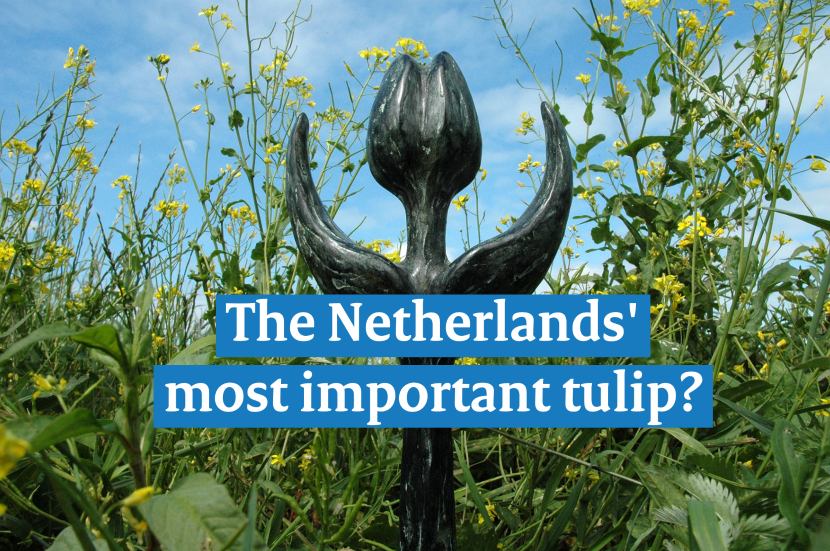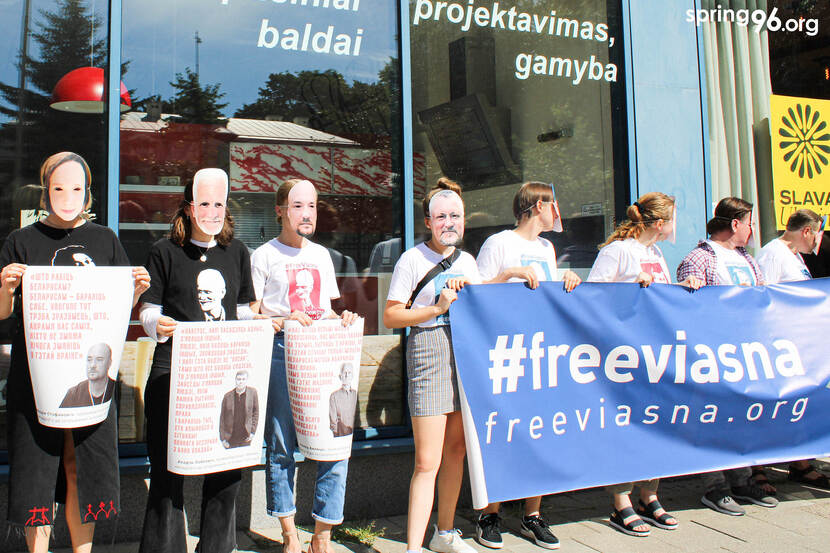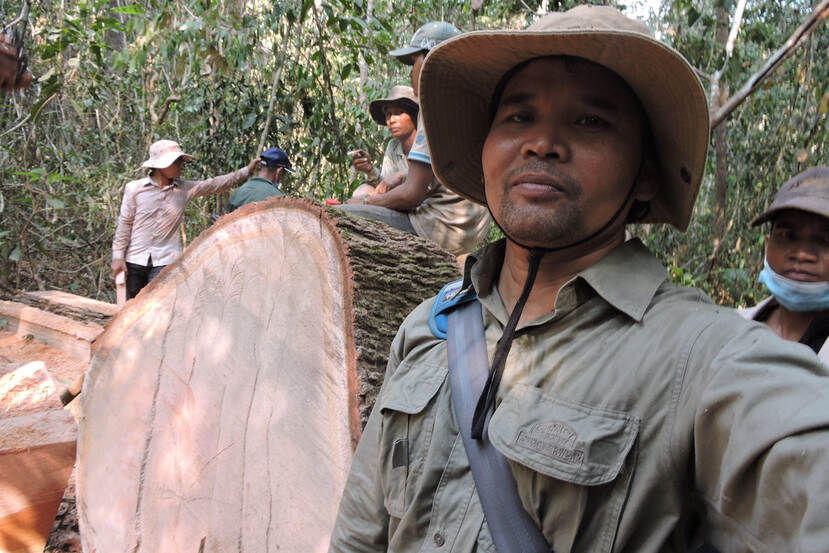What you (probably) didn’t know yet about the Human Rights Tulip
Weblogs
The Human Rights Tulip is awarded every year by the Ministry of Foreign Affairs to support the work of human rights defenders worldwide. Who are these human rights defenders? And why is the prize so important? Eduard Nazarski, chair of this year’s jury, explains.
First, a little background. Human rights are for everyone. Or at least, they should be. Every person wants to be accepted, wants to be able to move freely without fearing for their safety, wants to be able to go to work or school. But these rights cannot be taken for granted everywhere. That’s why the Ministry of Foreign Affairs promotes human rights worldwide. And the work of human rights defenders plays a key role in this effort.
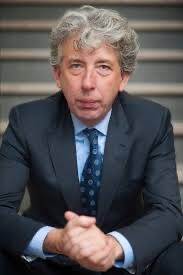
Global human rights defenders
‘In the past year a lot has happened in the world,’ Eduard explains. The former director of Amnesty International Netherlands chairs the jury that chooses the winner of the Human Rights Tulip. ‘Things like the war in Ukraine, the World Cup in Qatar, the reception of refugees in the Netherlands and the protests in Iran show that human rights aren’t a given. It’s important that we continue to realise this.’
‘Human rights defenders strive for justice in their countries, sometimes doing so at the risk of their own lives. It’s admirable work that’s humbling to see. These people and organisations deserve our support, and the Human Rights Tulip is an important way in which the Dutch government expresses this support.’
‘How hopeless and cruel would the world be without human rights? Without agreements between both states and people about how we treat each other?’
€100,000 prize for the Human Rights Tulip winner
The winner of the Human Rights Tulip receives a bronze tulip sculpture and €100,000 –money that the winner can use to expand their human rights work in order to reach more people, in more places.
‘A person or organisation can make a big difference with this money,’ Eduard says. ‘But publicity is important too, for all the candidates. This is one way the Dutch government shows it sets store by human rights, at home and abroad. I hope the ministry will stay in touch with these human rights defenders through the embassies, and continue to support them in every way possible.’
The Human Rights Tulip jury
Besides Eduard Nazarski, this year’s jury consists of Marie Ricardo, director of LGBTI rights organisation COC Nederland; Qader Shafiq, director of diversity advocacy group Bureau Wijland, local partner of Shelter City Nijmegen; Laura Bas, former Youth Ambassador for Sexual and Reproductive Health and Rights, Gender Equality and Bodily Autonomy; and Rick Lawson, professor of European law at Leiden University specialising in human rights.
The jury considers several factors in making its decision. ‘The expected impact of each nominee’s work weighs heavily,’ Eduard says. ‘But we also consider the obstacles that candidates come up against in pursuing their goals. And whether they try to solve problems on their own or by building bridges. Because the more connections you make with the wider society, the bigger your impact can be. And the more likely you’ll be to be able to set lasting changes in motion.’
The nominees for the 2022 Human Rights Tulip
There are still three remaining candidates for the 2022 Human Rights Tulip. You can read their exceptional stories below. The winner will be announced on 8 December at the Peace Palace in The Hague.
Human Rights Center Viasna
The Viasna Human Rights Center is a human rights organisation that was established in 1996 during mass protests by the democratic opposition in Belarus. Viasna is currently working to monitor the human rights situation in Belarus and raise awareness of democracy and human rights. The organisation also defends individual rights, particularly the rights of political prisoners. It has been operating illegally in Belarus since 2003. Find out more about Human Rights Center Viasna.
Leng Ouch
Leng Ouch has been working for human and environmental rights in Cambodia for 22 years. By investigating abuses and exposing corruption, he takes up the cause of groups of people whose interests are harmed by companies or government. These groups include local communities who are losing their land to large-scale deforestation. Find out more about Leng Ouch.
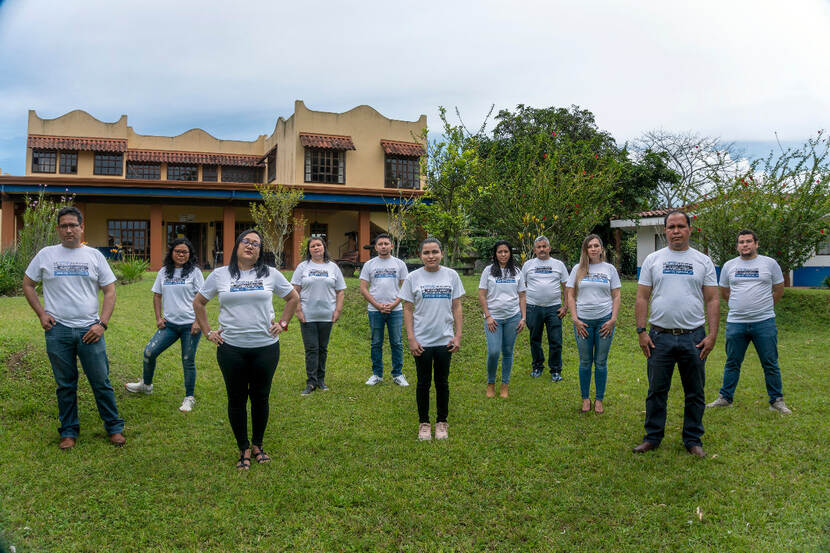
Thai Lawyers for Human Rights
Thai Lawyers for Human Rights is an organisation that was established in 2014 by a group of human rights lawyers and social activists, two days after the military coup in Thailand. The lawyers offer pro bono legal assistance to people who suffer arbitrary treatment or are put on trial for exercising their civil and political rights. The organisation also works to raise awareness among the Thai people, working closely with other human rights organisations and the UN. Find out more about Thai Lawyers for Human Rights.
Human Rights Week
In 2022, Human Rights Week is being organised for the first time in the Netherlands and will take place from 5 to 10 December. The purpose is to raise awareness of human rights among children, teens and young adults. Everyone can participate in Human Rights Week. ‘Human Rights Week underscores that we need to raise awareness of and be more vocal about the importance of human rights,’ explains Eduard in support of the initiative. ‘It is good to continue thinking about people’s rights and to have empathy and compassion for people in difficulty.’
